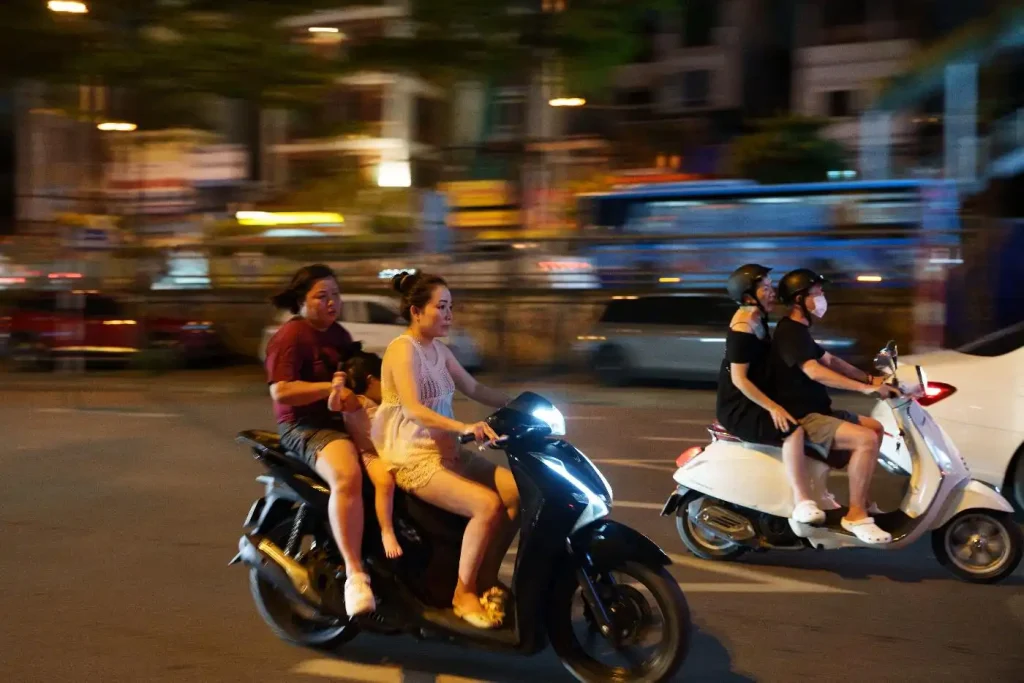Vietnam’s plan to ban petrol-powered motorbikes in Hanoi by mid-2026 has raised alarms among Japanese officials and manufacturers.
They warn of job losses and disruptions in a $4.6 billion market led by Honda. The move aims to curb air pollution but threatens the livelihoods of many in Vietnam’s massive two-wheeler industry.
Hanoi’s Push for Cleaner Air
In July 2025, Prime Minister Pham Minh Chinh announced a ban on petrol motorbikes in Hanoi’s city center starting mid-2026. Further restrictions will follow in 2028, with other regions likely to adopt similar rules.
Vietnam, with nearly 80 million registered motorbikes for a 100 million population, faces severe air pollution in urban areas like Hanoi and Ho Chi Minh City. The government sees electric vehicles as a solution to improve air quality.
Japan’s Call for a Smoother Transition
The Japanese embassy in Hanoi sent a letter to Vietnamese officials, urging a gradual shift to electric motorbikes. The letter highlighted risks to jobs in dealerships and parts supply chains.
It called for a clear timeline to allow businesses to adapt. A Japanese official noted the letter went out in September 2025, though full details remain private.
Manufacturers Fear Economic Fallout
A trade group representing foreign motorbike makers, including Honda, Yamaha, and Suzuki, also voiced concerns. In a July letter, they warned that the ban could halt production and push supply chain companies toward bankruptcy.
With nearly 2,000 dealers and 200 suppliers at risk, the group requested a two-to-three-year transition period to adjust manufacturing and expand charging infrastructure.
Honda’s Dominant Role in Vietnam
Honda controls 80% of Vietnam’s motorbike market, selling 2.6 million units in 2024. The brand is so prominent that “Honda” is a common term for motorbikes in Vietnamese.
However, its sales dropped 22% in August 2025 after the ban’s announcement, with a slight recovery in September.
While Honda offers electric models like the CUV e: and ICON e:, most of its vehicles rely on petrol. The company, which operates four factories in Vietnam, has no plans to close them but is closely watching developments.
Rising Electric Vehicle Sales
Vietnamese firm VinFast is seeing rapid growth in electric motorbike sales, up 55% in Q2 2025 to nearly 70,000 units. A September consumer survey suggests sales will climb further post-ban.
Meanwhile, Vietnam’s petrol car sales fell 18% in September 2025, as buyers hesitate amid the push for electric vehicles. Toyota, a market leader, holds over 25% of car sales, according to the Vietnam Automobile Manufacturers’ Association.
Balancing Environment and Economy
Prime Minister Chinh met with Japanese executives in August, stressing that reducing emissions is a global challenge requiring cooperation. He advocated for a practical roadmap to balance environmental goals with economic stability.
However, Vietnamese officials have not yet responded to Japan’s requests for a phased transition, leaving the industry in limbo as the 2026 deadline approaches.
READ ALSO: Louvre Shuts Down After Jewel Heist in Paris























